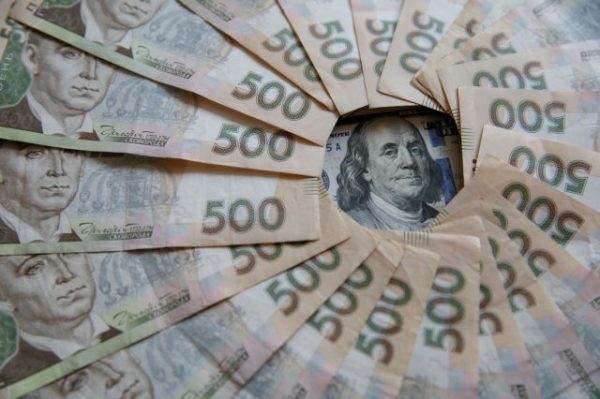
In June 2021, the current account deficit decreased year-on-year, mainly due to an improvement in the services balance and, to a lesser extent, the primary and secondary income accounts, which was partly offset by the deterioration in the balance of goods.
According to the Bank of Greece (BoG), in the first half of 2021, the current account deficit increased compared to the corresponding period of 2020, due to the deterioration in the balance of goods and the secondary income account, which was partly offset by an increase in the surplus of the primary income account and, secondarily, the services balance.
As the BoG points out, there has been an improvement in the travel balance. It is indicative that although the non-resident arrivals decreased by 20.4% in the first half of the year, the relevant receipts increased by 51.0% compared to the same period of 2020, representing only 20% of receipts in 2019. Net transport receipts dropped by 22.3%. Finally, the surplus of the primary income account rose, mainly due to lower interest, dividend and profit payments, while the secondary income account deficit increased.
Current Account Balance
In June 2021, the current account balance showed a deficit of €1.3 billion, recording a decrease of €88 million year-on-year.
A rise in the deficit in the balance of goods is due to the fact that imports increased more than exports in absolute terms. Specifically, exports increased by 36.7% and 11.9% at current and constant prices, respectively, and imports rose by 43.4% and 19.0% at current and constant prices, respectively. In particular, non-oil exports of goods increased by 30.0% and 22.5% at current and constant prices and non-oil imports increased by 33.4% and 30.9% at current and constant prices, respectively.
The rise in the services surplus is due to an improvement in the travel balance. On the contrary, the transport and other services balances deteriorated year-on-year. Non-residents’ arrivals and relevant receipts showed a significant increase, as a result of base effects due to their low levels in 2020. However, travel receipts turned out at a mere 31% of their level in June 2019. The surplus of the transport balance fell by 7.5%, although the sea transport balance improved.
In June 2021, the deficit of the primary income account declined year-on-year, mainly due to higher net receipts in the category of other primary income and, to a lesser extent, lower net payments in the category of interest, dividend and profits. The secondary income account balance improved, reflecting net general government receipts, against net payments in June 2020.
First half of 2021
In the first half of 2021, the current account deficit increased by €446 million year-on-year and stood at € 7.5 billion.
A rise in the deficit of the balance of goods is due to the fact that imports increased more than exports in absolute terms. More specifically, exports increased by 29.4% and 14.8% at current and constant prices, respectively, and imports increased by 23.8% at current prices and 7.3% at constant prices. In particular, on‑oil exports and imports of goods increased at approximately the same rate (23.1% and 23.5% respectively) at current prices, while at constant prices increased by 19.4% and 22.5%, respectively.
The rise in the services surplus is due to an improvement in the travel balance, which however was partly offset by a decrease in the transport surplus, as well as a deterioration in the other services balance. Non-residents’ arrivals decreased by 20.4%, while relevant receipts increased by 51.0% year-on-year, still standing at a mere of 20% of their 2019 level. Net transport receipts dropped by 22.3%. Finally, the surplus of the primary income account rose, mainly due to lower interest, dividend and profit payments, while the secondary income account deficit increased.
Capital account balance
In June 2021, the capital account registered a surplus, compared with a small deficit in June 2020, and amounted to €291 million. In the first half of 2021, the capital account surplus increased year-on-year and amounted to €714 million.
Combined current and capital account
In June 2021, the deficit of the combined current and capital account (corresponding to the economy’s external financing requirements) dropped by €379 million relative to June 2020 and stood at €1.0 billion. In the first half of 2021,the deficit of the combined current and capital account rose to €6.8 billion, from €6.5 billion one year earlier.
Financial account
In June 2021, under direct investments, residents’ external assets increased by €136 million and residents’ external liabilities rose by €579 million.
Under portfolio investments, an increase in residents’ external assets is almost exclusively attributable to a rise of €9.6 billion in residents’ holdings of foreign bonds and Treasury bills. An increase in residents’ external liabilities is due to a rise of €888 million in non‑residents’ holdings of Greek government bonds and Treasury bills.
Under other investment, an increase in residents’ external assets reflects mainly a statistical adjustment (of €456 million) associated with the issuance of banknotes. An increase in their liabilities reflects mainly an increase of €9.6 billion in non‑residents’ deposit and repo holdings in Greece (the TARGET account included).[1]
In the first half of 2021, under direct investment, residents’ external assets increased by €776 million and residents’ external liabilities, which represent non‑residents’ direct investment in Greece, rose by €2.3 billion.
Under portfolio investment, an increase in residents’ external assets is chiefly attributable to a rise of €11.6 billion in residents’ holdings of foreign bonds and Treasury bills. An increase in residents’ external liabilities is due to an increase of €2.3 billion in non‑residents’ holdings of Greek government bonds and Treasury bills
Under other investment, a rise in residents’ external assets reflects an increase of €2.3 billion in loans extended to non‑residents, which was partly offset by a decrease of €1.5 billion in residents’ deposit and repo holdings abroad. An increase in residents’ liabilities reflects chiefly an increase of €9.1 billion in non‑residents’ deposit and repo holdings in Greece (the TARGET account included) and, secondarily, a €5.8 billion rise in the outstanding debt to non‑residents.
At the end of June 2021, Greece’s reserve assets stood at €9.1 billion, compared with €8.9 billion at end‑June 2020.
Latest News

New Exposé by Domumento Reveals Nefarious Triangular Link of ‘Black Money’ with New Democracy, Blue Skies, & Truth Team
The latest exposé by the Documentonews.gr news site lays bare what appears to be a surreptitious path of indirect financing of ND through the business sector—transactions that, as widely understood, rarely occur without expectations of reciprocal benefit

PM Meloni Meets Vice President Vance in Rome Signalling Optimism on Ukraine Talks
Meloni emphasized the strength and strategic value of the Italy-U.S. partnership.

Airbnb: Greece’s Short-Term Rentals Dip in March Amid Easter Shift
Data from analytics firm AirDNA shows that average occupancy for short-term rentals dropped to 45% in March, down from 49% the same month last year.

Easter Week in Greece: Holy Friday in Orthodoxy Today
At the Vespers service on Friday evening the image of Christ is removed from the Cross and wrapped in a white cloth

Meloni and Trump Meet in Washington, Vow to Strengthen Western Ties
“I am 100% sure there will be no problems reaching a deal on tariffs with the EU—none whatsoever,” Trump stressed.

ECB Cuts Interest Rates by 25 Basis Points in Expected Move
The ECB’s Governing Council opted to lower the deposit facility rate—the benchmark for signaling monetary policy direction—citing an updated assessment of inflation prospects, the dynamics of underlying inflation, and the strength of monetary policy transmission.

Current Account Deficit Fell by €573.2ml Feb. 2025: BoG
The improvement of Greece’s current account was mainly attributed to a more robust balance of goods and, to a lesser extent, an improved primary income account

Hellenic Food Authority Issues Food Safety Tips for Easter
Food safety tips on how to make sure your lamb has been properly inspected and your eggs stay fresh.

Greek Kiwifruit Exports Smash 200,000-Ton Mark, Setting New Record
According to data by the Association of Greek Fruit, Vegetable and Juice Exporters, Incofruit Hellas, between September 1, 2024, and April 17, 2025, kiwifruit exports increased by 14.2%.

Easter Tourism Boom: Greece Sees 18.3% Surge in Hotel Bookings
Among foreign markets, Israel has emerged as the biggest growth driver, with hotel bookings more than doubling—up 178.5% year-on-year.







![Πλημμύρες: Σημειώθηκαν σε επίπεδα ρεκόρ στην Ευρώπη το 2024 [γράφημα]](https://www.ot.gr/wp-content/uploads/2025/04/FLOOD_HUNGRY-90x90.jpg)





![Airbnb: Πτωτικά κινήθηκε η ζήτηση τον Μάρτιο – Τι δείχνουν τα στοιχεία [γράφημα]](https://www.ot.gr/wp-content/uploads/2024/07/airbnb-gba8e58468_1280-1-90x90.jpg)



























 Αριθμός Πιστοποίησης
Αριθμός Πιστοποίησης